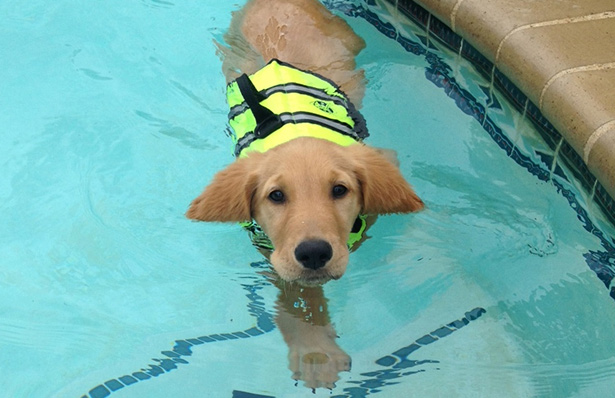It is the time of the year to the beach, we should be moving towards the sea, embrace the sun, hug the dog and the person we love! Here are ten things you need to know to keep your dog safe at the beach.
- Not all dogs can swim.That’s right, the doggie paddle does not come naturally to every dog … like Ty for example. In fact, certain breeds like Corgis and Pugs don’t swim at all. Find some quiet water and give your dog a chance to show you if he can swim or not by encouraging him to follow you. Never throw your dog in the water and expect him to swim.

http://www.innxproducts.com/Pets/cargo-liner-cover/Delux-Cargo-liner-cover.html - Drinking salt water is a bad idea.This is logical, and yet getting Buster continues to try to lap up the ocean. The more I want him to stop – the more he wants to drink. In the event you have more luck with your dog, pack plenty of water to keep you both hydrated.
- Invest in a life vest.Waves, current, and rip tides can quickly exhaust your dog, and that can be deadly. Life vests made specially for dogs come in all sizes. When you’re making your selection, look for one that fastens at three points and has a handle on the back, making it easy for you to lift your dog out of the water.

http://www.innxproducts.com/Pets/car-seat-cover/Delux-car-seat-cover.html - Use sun screen.You’re not the only one that needs to be concerned with sun burn. Get a sun screen specially formulated for dogs and apply it to your dog’s nose and ears 30 minutes before hitting the beach.
- Beware of submerged dangers.Sharp rocks, shells, coral, and jellyfish can injure your dog. And, because dogs often don’t indicate when they’re in pain, you’ll need to watch his body language and carefully check him for cuts and scrapes.
- Calm water is best.Surf boards, jet skis, and big waves can frighten your dog. Find a quiet place to play with your pup, or locate a local dog beach were surfing and boating are not allowed.
- Head for cover.The sun and the sand are fun, but it’s nice to have a place to take a break in the shade and out of the wind. Consider bringing an inexpensive tent to give you and your dog a comfortable place to relax.
- Don’t overdo it.Running on sand is strenuous, so don’t expect your dog to be able to fetch as long as he might at the dog park. And, start slow, giving him time to warm up to avoid a muscle pull.
- Cold water can hurt.Remember, if your dog has arthritis or other joint issues, swimming in cold water can irritate the condition. Stick to shallow water and bays where the water is warmer.
- Rinse thoroughly.When you’re done playing, take time to rinse salt, sand, and microscopic organisms from your dog’s coat. Also, be sure to dry your dog’s ears as moisture in the ear canal can cause ear infections.
Do you have any additional tips for dogs going to the beach?





